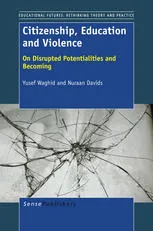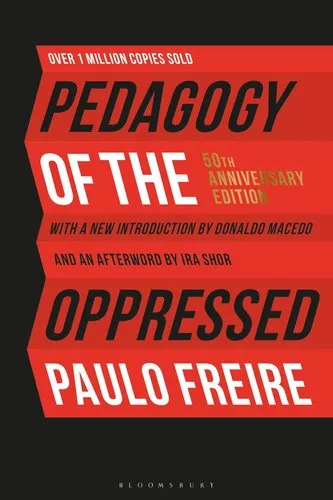Citizenship, Education and Violence: On Disrupted Potentialities and Becoming
4.0
Reviews from our users

You Can Ask your questions from this book's AI after Login
Each download or ask from book AI costs 2 points. To earn more free points, please visit the Points Guide Page and complete some valuable actions.Related Refrences:
Welcome to a journey of exploration into the intricate relationship between citizenship, education, and violence, as portrayed in 'Citizenship, Education and Violence: On Disrupted Potentialities and Becoming.' Yusef Waghid and Nuraan Davids delve deeply into the nuances of how education systems can either perpetuate cycles of violence or foster a society where meaningful citizenship thrives. The book unravels the complexities surrounding these three intertwined facets, aiming to illuminate paths to constructive change and individual potentialities.
Summary of the Book
The book critically examines how conventional education practices often sustain violent paradigms through exclusion, marginalization, and inequity. The authors argue that education, when approached with a deep-seated commitment to social justice, empathy, and dialogue, can transform individuals and societies. The text is a call to action for educators, policymakers, and society to reimagine citizenship education as a means of cultivating peaceful coexistence and mutual understanding.
The authors introduce the concepts of 'disrupted potentialities' and 'becoming' as pivotal to understanding the transformative power of education. They explore philosophical and practical aspects of these ideas, drawing on critical theory to suggest ways educators can cultivate environments where students are encouraged to question, engage, and grow into active, responsible citizens.
Key Takeaways
- Education is inherently political and can either sustain or dismantle patterns of violence.
- A reimagined approach to citizenship education is essential to nurturing peace and justice in society.
- The notion of 'becoming' encapsulates the ongoing process of individual and societal transformation.
- Dialogue and critical engagement are key components in fostering a culture of understanding and non-violence.
- Disrupted potentialities refer to the ability of education to help individuals transcend constraints imposed by socio-political structures.
Famous Quotes from the Book
"Education should not be seen as the mere transmission of knowledge, but as a transformative process where students learn to navigate and challenge the realities around them."
"Citizenship is not a bestowed status but a dynamic practice of engagement with the world."
Why This Book Matters
This book is crucial for educators, students, and policymakers who are passionate about transforming education to serve the needs of peace, justice, and human dignity. It challenges readers to reconceptualize the role of education in society, urging them to acknowledge its potential not just as a system of learning, but as a platform for engaging with profound social issues. By weaving together theory and practical examples, the authors provide compelling arguments for why and how education should serve as an incubator for active citizenship and societal harmony.
Ultimately, 'Citizenship, Education and Violence' is a wake-up call to rethink entrenched educational paradigms and seek opportunities to foster environments where every learner can realize their potential in a world free from violence. As societies across the globe grapple with increasing social tensions and conflict, this book offers a hopeful blueprint for nurturing individual and collective transformation.
Free Direct Download
You Can Download this book after Login
Accessing books through legal platforms and public libraries not only supports the rights of authors and publishers but also contributes to the sustainability of reading culture. Before downloading, please take a moment to consider these options.
Find this book on other platforms:
WorldCat helps you find books in libraries worldwide.
See ratings, reviews, and discussions on Goodreads.
Find and buy rare or used books on AbeBooks.
1383
بازدید4.0
امتیاز50
نظر98%
رضایتReviews:
4.0
Based on 0 users review
"کیفیت چاپ عالی بود، خیلی راضیام"



